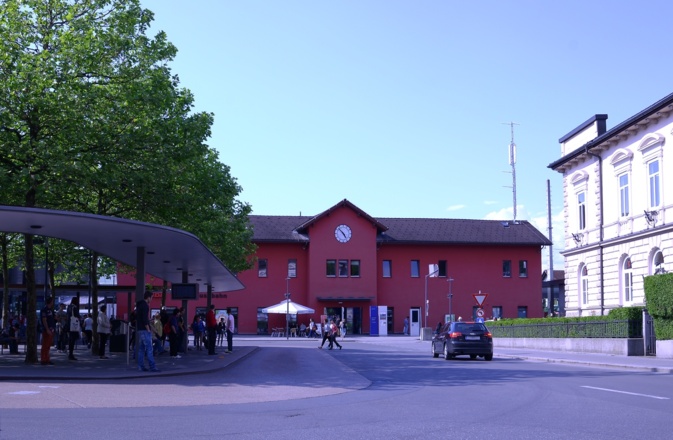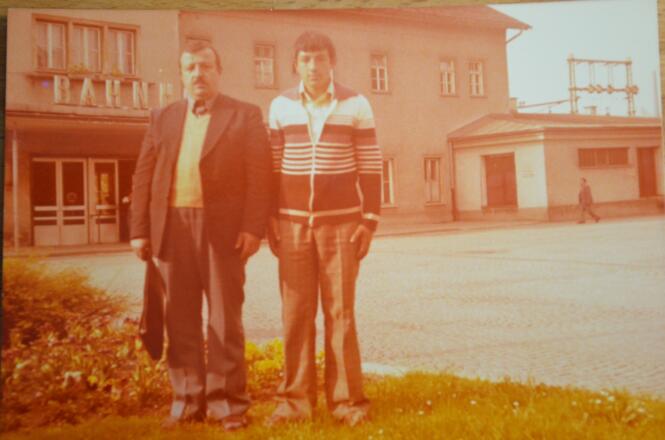|
Eisenbahnlinie 7, 6850 Dornbirn, Österreich
entfernt
|
|
| vielfaltenarchiv.at/menschenspuren |
Bahnhof/Train station EN
Beschreibung
Welcome to the tour “Human Traces” in Dornbirn. You will hear academic statements as well as personal testimonials on the topic of migration.For example, a Turkish foreign worker shares his experience of coming to Vorarlberg:
Train Station – Longing - Arrival
Trabzon/Istanbul/Dornbirn. I cried every time I had to leave my family. My wife lived with my father and my mother. Our parents kept an eye on our wives and children, whom we had to leave behind. They were not too happy about the fact that we packed our things so shortly after the wedding at such a young age, to go to a country whose language and culture were completely alien to us. I took a “Dolmuş” bus from our village to Trabzon, from where I took an “Otogar” bus to Istanbul. Tears were streaming down my cheeks as I thought about the previous evening. We celebrated a ritual, which bids people goodbye who are off on a long journey. Almost half the town was gathered to see me one last time and ask for forgiveness – this is called “HELALLÉŞMEK“. Another custom is to pour out a jug of water behind the traveler (this ritual is based on shamanism and is still practiced today). Upon arrival in Istanbul we walked to the bazaar, since we had to have groceries and some delicacies from Turkey, which were hard to get in Vorarlberg. Turkish veal sausage, cheese, bread and spices – as much as you could pack. Another part of my luggage was Turkish literature, a piece of home to read. Photographs and a little Turkish flag were supposed to remind me of why I came to Austria.
The next part of my journey began in Sirkeci/Istanbul, this time by train. I remember thinking that it was going to be a long journey, so I looked for people from the same region, my “Hemşeri”. At the border, I saluted home with one last glance. When we arrived at the train station in Thessaloniki, the train was surrounded by soldiers. It was prohibited to look out of the window, since Turkey and Greece were enemies at the time. My excitement turned to fear. The first time passing the border and already I was scared. But that was only the beginning. In the following years we lived in fear of the police and of having our visa taken away from us. This fear was passed on to the children. We were also scared of the landlord, he could have kicked us out of the apartment at any time.
Through waves of migration, many cultures became detached from their national borders, for example the Turkish Circassians, who were driven out of Russia and fled across the Black Sea to Turkey 150 years ago. The wave of foreign workers brought many of them to Europe. The famous author Kundeyt Şurdum is one of those Circassians.
www.vielfaltenarchiv.at/menschenspuren
stadtarchiv.dornbirn.at/menschenspuren



